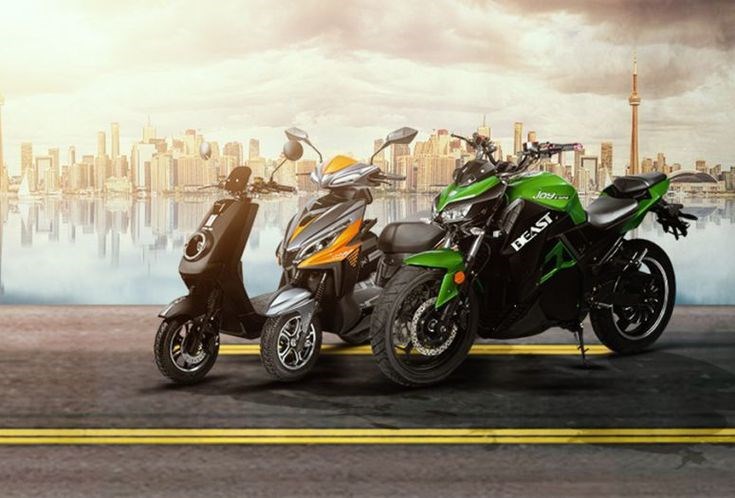
18-Jun-2025 , Updated on 6/18/2025 4:36:29 AM
Petrol vs. Electric Bikes in 2025: A Head-to-Head Comparison for the Indian Rider
Commute Range & Refueling Convenience
The range advantage of petrol bikes is massive as they can cover 300-500 km on a single tank without worrying about running out of fuel. It is also largely convenient to refuel, as it simply takes a few minutes at the large number of petrol stations in India. Electric bikes can usually offer 80-150 km of electricity which is enough to use in the city but limited when it is necessary to go somewhere longer. Recharging must wait on infrastructure or home parking access and be an hours or overnight task, which does not have the instant gratification of petrol or diesel. Petrol bikes will still win in terms of convenience of range and refueling.
Running Cost Savings Per Kilometer
The running cost per kilometer of an electric bike is much less than that of the petrol bike in India. At the current prices of petrol (around 110/ltr), and average efficiency of bikes (45-50 kmpl) this leads to a fuel-cost of 2.2-2.4/km. Conversely, the electricity price (after subsidies 6-8 rupees per kilowatt-hour) and e-bike power consumption (50- 80 kilometers per kilowatt-hour) come to the cost of energy (only) 0.08- []; rupees per kilometer. This activates a saving of up to 70-90 percent of direct energy cost in terms of kilometers covered by the rider. These significant savings, devoid of variations in the maintenance costs, compose one of the major economic benefits of electric two-wheelers.
Urban Traffic Agility & Handling
Electric bikes have unique traits such as agility and handling in congested city traffic especially in India. The reduction of the Center of Gravity in their design into a lower area because of their strategic use of batteries increases low speed stability and tight filtering maneuverability. Instantaneous delivery of torque action enables quick acceleration when stationary which is imperative when dealing with stop-start situations and braking gaps. It is easy to operate without a clutch or gears. The petrol bikes need clutch entry and have to rev more in order to make similar responsiveness. They are normally heavier and their dependency on gear shifting imply that they are less nimble in low-speed, dense urban settings than electric two-wheelers, which have flickable characteristics.
Maintenance Simplicity & Time Saved
Electric bikes have minimal maintenance as compared to petrol bikes. They have much less moving parts in their design and do not require complex engines, oil systems and exhaust systems. Normal things like conciliation of oil, air filter, and valve adjustment are not required. The petrol bikes have these routine, regular servicing requirements, as well as the chain maintenance that take the owner and the time and periodical visits to workshops. There is no time and additional maintenance complexities involved with using electric bikes.
Future-Proof Investment & Subsidy Value
Electric bikes offer a proven more futuristic investment in the Indian mobility world. Much state incentive (FAME II, state incentives) can make upfront purchases a fraction of the purchase price, making it much more affordable now. In addition to the cost of acquisition, the significantly reduced cost of electricity per kilometer compared to the increased cost of petrol will give long term operations savings. More importantly, growing regulatory pressure towards zero-emission vehicles (such as future congestion charges, or more strict emissions standards) are likely to make petrol bikes an increasingly uncompetitive asset. Although petrol bikes have retained a residual value advantage, this is likely to change quickly as there are major breakthroughs in technology and the acceptance of EV in the mainstream. The decision to choose electric gives optimum economic and compliance long-range prospects as well as taking advantage of the existing subsidies and futuristic shifts which will definitely occur in regulations.

Content Writer
Hi, I’m Meet Patel, a B.Com graduate and passionate content writer skilled in crafting engaging, impactful content for blogs, social media, and marketing.
Join Our Newsletter
Subscribe to our newsletter to receive emails about new views posts, releases and updates.
Copyright 2010 - 2026 MindStick Software Pvt. Ltd. All Rights Reserved Privacy Policy | Terms & Conditions | Cookie Policy